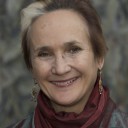The European Cultural Foundation (ECF) is an independent grant giving and programming foundation based in the Netherlands. It was founded almost 60 years ago by leading European thinkers, including Denis de Rougemont and Robert Schumann, who believed that the future of Europe was more than coal and steel and that culture is a key element of the European project. We are still firmly anchored on these pillars: Europe and culture.
However, it is an understatement to say that the context within which we work is very different now – as always, new, future-looking approaches are needed. So, speaking as one member of Network of European Foundations (NEF), this initiative could not have been more timely. The NEF 10th Anniversary Project was called an unconventional summit, under the title ‘Seeding the Future of Europe’.
We undertook to bring together seemingly unlikely allies in an unconventional conversation where there were to be no panels and no speeches; rather an open space for exchange, sufficiently far from the demands of our everyday lives.
One of the objectives of the summit was to gather as many different perspectives as possible and to bring together so-called ‘insiders’ – those working within the institutions, making policy or influencing decisions – with ‘outsiders’, those outside of the systems, as it were, but who are actively and positively exploring other ways forward. Because if we keep talking to those we know and who hold the same opinions as ours, we will never find a courageous way forward.
NEF is an operational platform established to develop projects or initiatives between foundations and other private and public partners on a European level, and mindful of the role of Europe on the global stage. Not all NEF members work on every project, but this one – celebrating NEF’s ten years – galvanized all of us. Solutions to the complex issues of our times and systems change can happen only if the challenges are faced head on with many thinkers and doers – economic, social, environmental, cultural. It is vital both to enable cross-sectoral exchange and to ensure intergenerational engagement. The 50 delegates reflected diverse perspectives – activists, artists, scientists, economists, lawyers, community leaders, policymakers – and there were European thinkers of all ages, the majority of whom reflected the generation of committed Europeans who have grown up in a relatively borderless world and live and breathe Europe every day.
The weekend of 31 August–2 September at the extraordinary Stift Altenburg monastery in Austria was not a beginning – all the delegates had been working on the challenges posed by the crisis in Europe and across the globe before they came – nor was it an end, but it was a key step in a process. The crisis in Europe is not simply an economic crisis, although it is often only viewed through this lens; it is also a crisis in democracy evidenced by a widening gap between the institutions and people.
The starting point for the summit was to consider the future that we want – to address current challenges by projecting ourselves into the future, then to identify the seeds of change that would allow us to realize this future. We hoped that the delegates themselves would individually and collectively commit themselves to taking ideas forward – to nourish, grow and communicate them. Over two days the knitting together of people and ideas was palpable and at the close of the weekend ideas were indeed clearly owned and committed to. Ideas ranged from the micro to the macro, from strengthening human rights watchdogs and aspiring to a Europe where energy is clean and owned by the people to championing sustainable consumerism, including do-it-yourself making and gardening. Also proposed was a drive for a ministry for creativity in all EU countries and a democratic audit of the EU, akin to one currently undertaken in the UK.
The weekend underscored for me our role as a foundation, and that by working together as foundations we can enable the environment in which solutions can be found and change can happen. We must continually find those individuals and organizations who are leading in their communities – wherever they come from and whatever they work on. We must find ways to connect them, but not direct them. We can provide some of the nourishment – resources at the right time for ideas to flourish and open platforms for exchange. And we can illuminate these ideas – amplifying their voices and shining a light on the successes, not only so that more and more people are involved but also so that vital links can be made with policymaking.
ECF was also very happy to bring a collaborative media art project called European Souvenirs to the monastery. The project brings together brings together five exceptional artists: Maleventura, Spain; Noriko Okaku, UK; Karol Rakowski, Poland; Farah Rahman, Netherlands; and Boris Gursel, Turkey. The team had just come from an intense workshop in Warsaw. They are each on a personal journey digging into sound and image archives in their city, collecting, remixing and juxtaposing what they unearth. When they come together their own discoveries are in conversation with the others – a live cinema akin to rich improvisation – where images, sound, perspectives weave together in a new shared experience, a new look at our European narratives, a remapping of our histories and geographies into shared visions for the future.
Katherine Watson is director of the European Cultural Foundation







Comments (1)